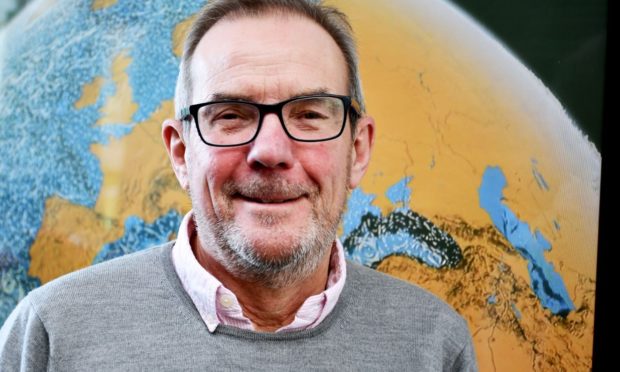A leading marine scientist has called for action to tackle the threat posed by human activities to global ocean ecosystems.
Prof Nicholas Owens, director of the Scottish Association of Marine Science (SAMS), said there has never a more important time to support marine science research.
As Scotland develops its ‘blue economy’, focusing on marine and coastal development – seen as a crucial part of the country’s recovery post-lockdown – Prof Owens said society had a responsibility to ensure the ocean was protected for the generations to come.
SAMS’s five-year strategy calls for investment in research, technology and people and he said finding the right balance between using and protecting the ocean required a greater understanding of the marine environment.
The strategy describes the global ocean as the most important component of Earth’s life support system, helping to stabilise the climate.
But SAMS also says it is “seriously degraded” and under threat of ecosystem collapse from climate change, ocean acidification, pollution, and exploitation.
It says these stresses are caused by human activities and behaviour and the growing demand for seafood, shipping, mineral resources, coastal development, energy, waste disposal and tourism.
“The need for marine conservation and economic development of marine industries can thus be in conflict,” the strategy states.
SAMS seeks to find a sustainable middle ground, whereby the marine environment is protected, while meeting the needs of the population.
It says its business model of research, education and enterprise is geared to generate new knowledge that informs policy makers about the ocean environment.
It also allows the institute to disseminate these findings through teaching, as part of the University of the Highlands and Islands, and to develop solutions and commercially useful products.
Prof Owens said: “As the oldest marine research organisation in the United Kingdom we will empower our team of researchers to use their ingenuity in observing, understanding and predicting the changes in our ocean to develop new solutions to the problems of climate change, depletion of marine life, water pollution, waste, and food security.
“We will encourage them to develop environmentally advanced innovation and commercialisation products to benefit the blue economy.
“I am committed to a vision where one day our oceans will be fully healthy again, teeming with diverse and abundant marine life.
“I dream that this healthy ocean will also bestow on us clean energy, plentiful and good food, powerful medicines and global transport systems that will connect people and societies.”
